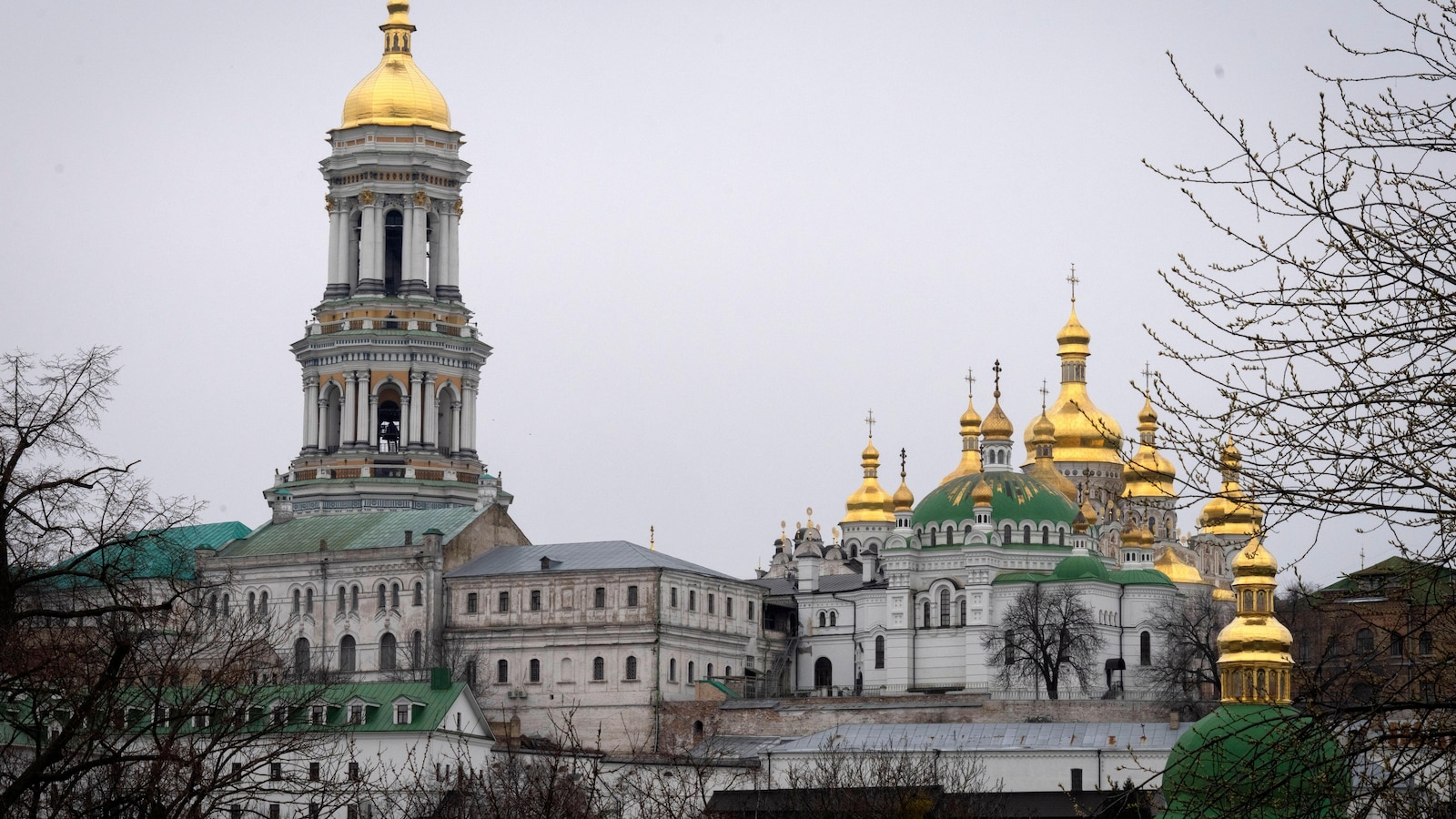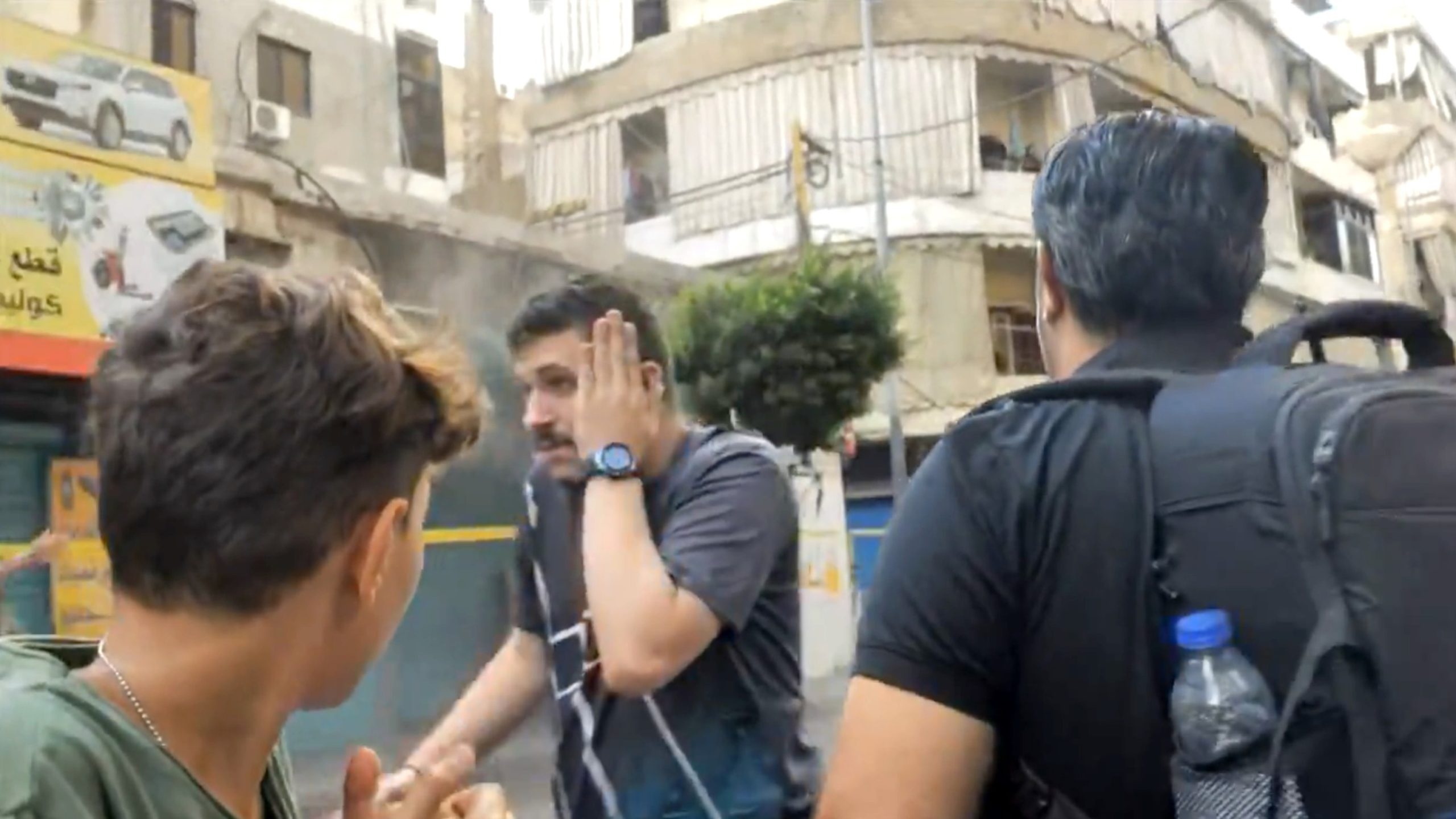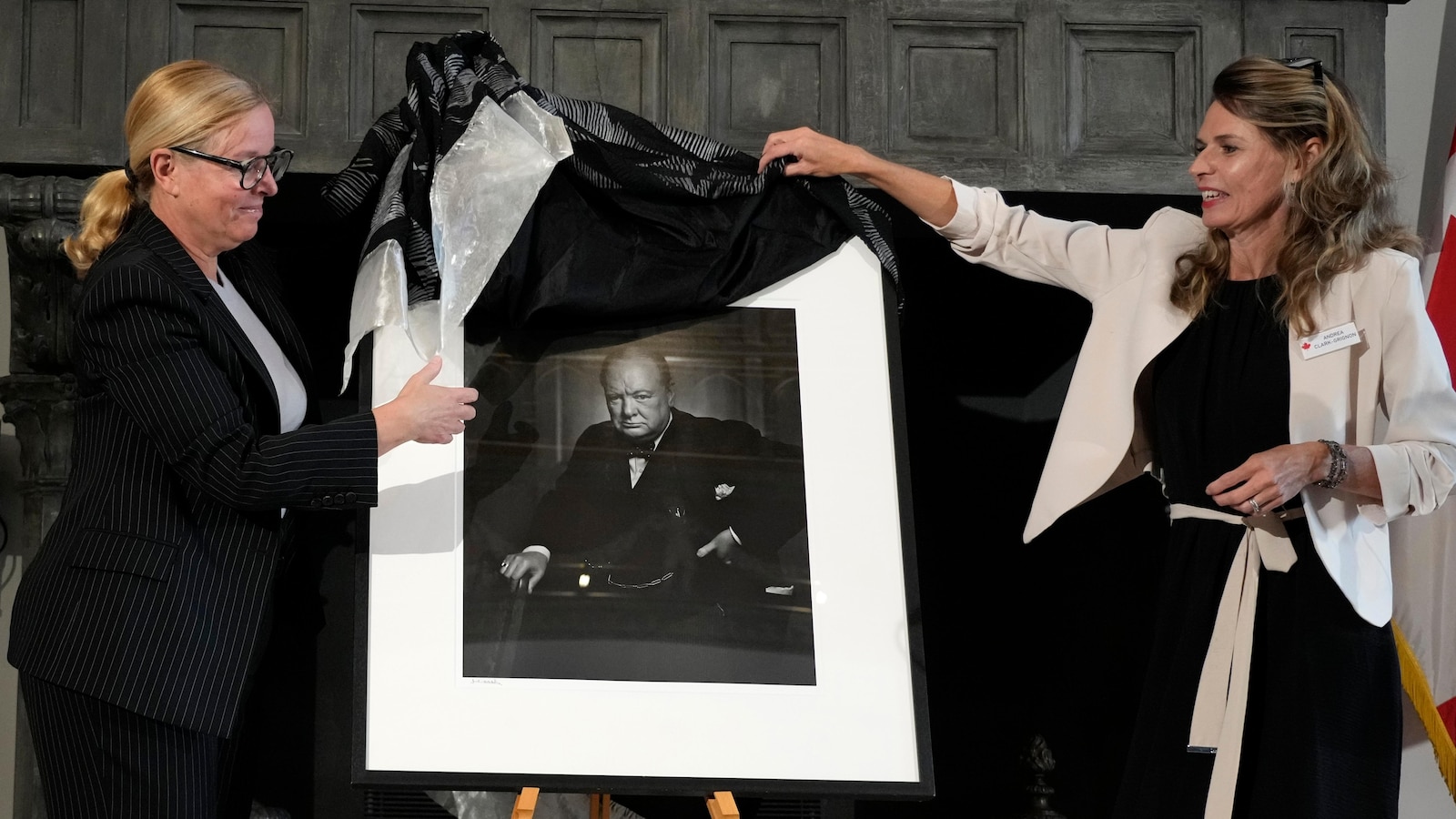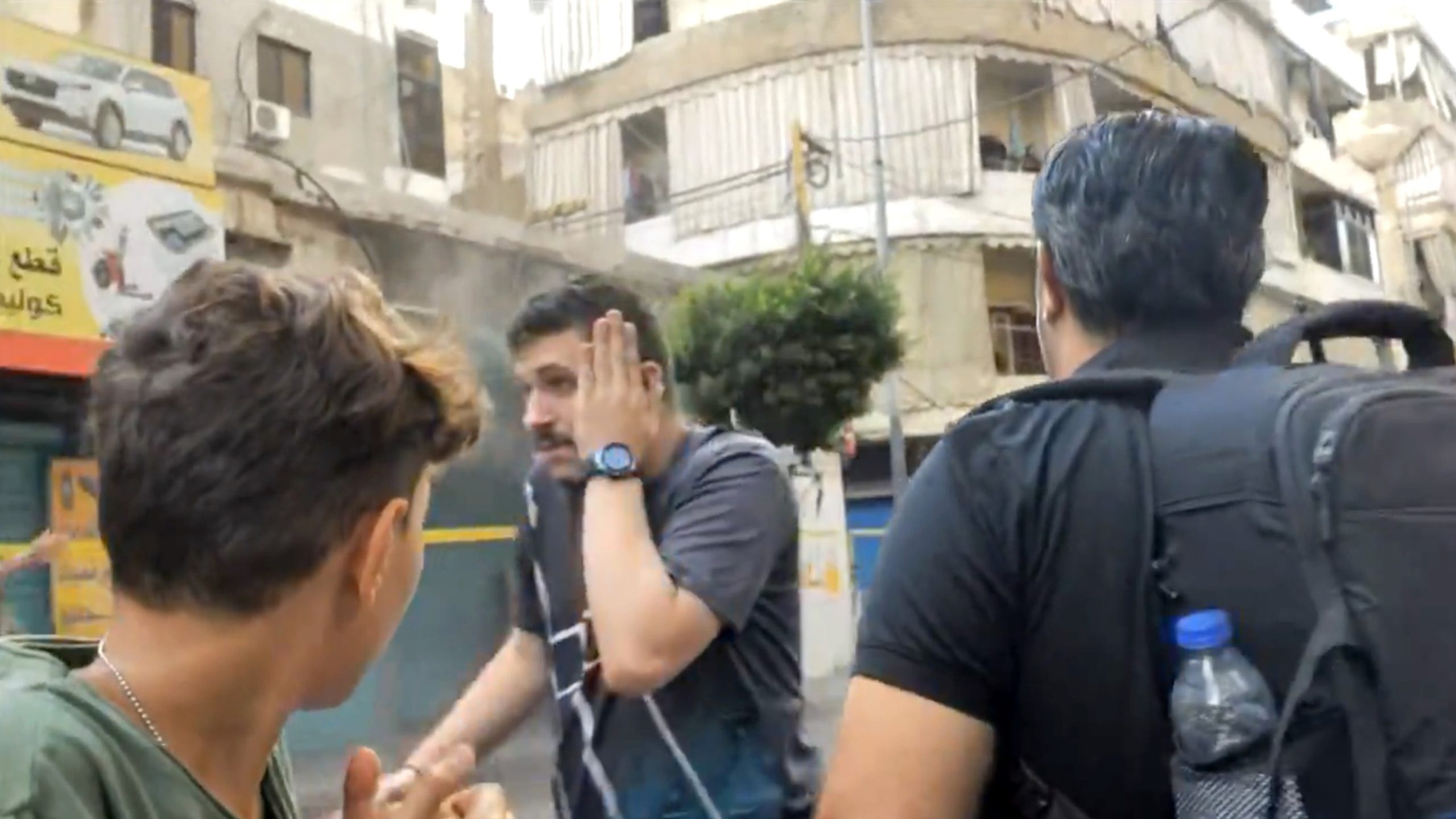
Ukraine’s parliament has banned the activities of religious groups tied to the Russian Orthodox Church or any other faith group supporting Russia’s invasion — a measure widely seen as targeting a Ukrainian religious body, despite its claim to independence from Moscow.
The bill creates the legal tools for the government to ban the activities of any religious group deemed to be too closely connected to Russia or to support its invasion of Ukraine..
The Verkhovna Rada approved the bill on Tuesday with 265 affirmative votes and only 29 opposed.
The explicit ban on the Russian Orthodox Church is seen as aimed at the Ukrainian Orthodox Church, which historically has been tied to the Russian church.
The UOC has proclaimed its loyalty to Ukraine and insists that it has broken from the authority of the Russian Orthodox Church.
But the Ukrainian government says it remains canonically tied to the Russian church and its Moscow-based patriarch, who has depicted the Russian invasion of Ukraine as a holy war.
A large majority of Ukrainians are Orthodox, but they are divided between two main groups with similar names: the UOC and the Orthodox Church of Ukraine, which would not be affected by the legislation. Many Ukrainians continue to call the UOC the Ukrainian Orthodox Church – Moscow Patriarchate, as it was commonly known, despite its recent claims to independence.
The approval of the legislation comes more than a year and a half after it was first endorsed by President Volodymyr Zelenskyy and underwent multiple revisions.
The bill requires Zelenskyy’s signature, which is expected. “It is our common duty to guarantee Ukrainian spiritual independence,” Zelenskyy said earlier this month.
The bill authorizes the government to investigate suspect religious groups, though final court enforcement of any action could not take effect until nine months after the law’s publication.
The bill explicitly prohibits activities of the Russian Orthodox Church, calling it “an ideological extension of the regime of the aggressor state” and “an accomplice to war crimes and crimes against humanity.”
It also bans religious organizations with ties to any organization located in a state carrying out armed aggression against Ukraine, or supporting such aggression.
The Ukrainian Orthodox Church has had a centuries-long affiliation with the Russian Orthodox Church. Three months after Russia’s invasion in 2022, the UOC declared its “full self-sufficiency and independence” from Moscow, and it has repeatedly declared its loyalty and called on members to fight for Ukraine as a sacred duty.
But many Ukrainians remain suspicious of the church.
Since the beginning of Russia’s full-scale invasion, criminal proceedings have been initiated against over 100 clerics of the UOC for alleged war-related crimes, the Security Service of Ukraine said on Tuesday. Almost 50 of them have already been charged, and 26 have received court sentences, it said. Some clerics were exchanged for Ukrainians held in Russian captivity, according to the service.
After searching UOC church sites, the nation’s security agency has shared photos of the evidence it found, including rubles, Russian passports, and pro-Russian leaflets
The State Service of Ukraine for Ethnopolitics and Freedom of Conscience has said after examining the UOC’s governing documents that the church remains a structural unit of the Russian Orthodox Church.
A lawyer representing the UOC denounced the legislation as a “grotesque violation of religious freedom.”
“It’s rare in law to find a bill so contemptuous of legal standards as this bill,” attorney Robert Amsterdam, whose firm is based in Washington and London, said in an interview. “We will go to every court we can. We will go to the United Nations.”
Amsterdam called the measure “religious cleansing.” He insisted that the new law makes it impossible for the UOC to defend itself because it targets any religious organization that the Russian Orthodox Church claims, in its own governing documents, to control. Amsterdam said the UOC can’t control what’s in the ROC charter.
He noted the bill also targets any religious organization whose “authorized persons” are convicted for crimes against Ukraine’s security. He said that amounts to illegal “collective punishment” against an entire church and its believers for the alleged actions of its leaders.
The Ukrainian bill also prohibits any religious organization promoting the “Russian world” ideology.
The bill is yet another manifestation of a deep-rooted religious and cultural struggle behind the war. Russian President Vladimir Putin has justified the invasion in part on the claim that Moscow oversees a wider “Russian world,” a sphere of cultural and spiritual influence across present-day Russia, Ukraine and Belarus.
Ukrainians consider that concept as ideological aggression, noting that Kyiv adopted Christianity in the 10th century and was the region’s political and spiritual center long before the rise of Moscow.
Moscow Patriarch Kirill, who oversees the Russian Orthodox Church, has portrayed the war as part of a metaphysical struggle against the West and gay pride parades. In March, Kirill oversaw a council that declared Russia’s invasion a “holy war” in defense of the region’s “single spiritual space.” The document claims Russia is protecting the world from “globalism and the victory of the West that has fallen into Satanism.”
The OCU was formed by a merger of two breakaway churches created in parallel with Ukraine’s assertion of political independence from Russia. The OCU received recognition in 2019 as completely independent — or “autocephalous” — by Ecumenical Patriarch Bartholomew of Constantinople, who is deemed the “first among equals” among Orthodox patriarchs. But unlike a pope, he doesn’t have universal authority in the church, and Kirill fiercely rejected Bartholomew’s decree.
Leaders of other religious groups in Ukraine say that in Russian-occupied areas of Ukraine, minority faiths are severely persecuted.
___
AP journalists Hanna Arhirova and Illia Novikov in Kyiv, Ukraine, contributed to this report.
___
Associated Press religion coverage receives support through the AP’s collaboration with The Conversation US, with funding from Lilly Endowment Inc. The AP is solely responsible for this content.
Ukraine’s Parliament recently passed a controversial law that bans religious groups with ties to Moscow, a move that has sparked debate and raised concerns about religious freedom in the country. The law, which was approved by a majority vote in the Verkhovna Rada, Ukraine’s parliament, prohibits religious organizations that are affiliated with Russia from operating in the country.
The ban specifically targets the Ukrainian Orthodox Church of the Moscow Patriarchate, which is the largest and oldest Orthodox Christian denomination in Ukraine. The church has long been seen as a symbol of Russian influence in the country, and its ties to Moscow have been a source of tension between Ukraine and Russia for years.
Proponents of the ban argue that it is necessary to protect Ukraine’s national security and sovereignty, especially in light of the ongoing conflict with Russia in eastern Ukraine. They claim that the church’s ties to Moscow make it a potential tool for Russian propaganda and influence in the country.
However, critics of the law argue that it infringes on religious freedom and discriminates against members of the Ukrainian Orthodox Church of the Moscow Patriarchate. They argue that the ban is a violation of the rights of religious minorities in Ukraine and could lead to further division and conflict within the country.
The law has also drawn criticism from international human rights organizations, who have expressed concerns about the impact of the ban on religious freedom in Ukraine. The United States Commission on International Religious Freedom (USCIRF) has called on the Ukrainian government to reconsider the law and ensure that it does not infringe on the rights of religious minorities.
Despite the controversy surrounding the ban, supporters of the law argue that it is necessary to protect Ukraine’s national interests and prevent further Russian influence in the country. They believe that the ban will help to strengthen Ukraine’s independence and sovereignty in the face of ongoing tensions with Russia.
It remains to be seen how the ban will be implemented and enforced in Ukraine, and what impact it will have on religious freedom in the country. As the debate continues, it is clear that the issue of religious affiliation and national identity will remain a contentious and complex issue in Ukraine for years to come.


